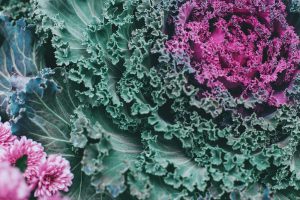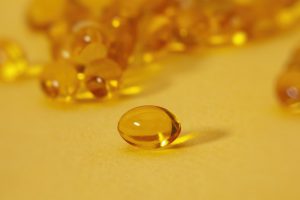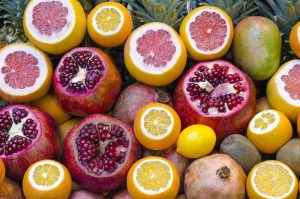 This is part 2 of a blog series. Please see our first blog, What is Oxidative Stress.
This is part 2 of a blog series. Please see our first blog, What is Oxidative Stress.
As a refresher oxidative stress is a term used to describe when the critical balance between free radical generation and antioxidant defenses is tipped, with an excess of free radicles resulting in oxidative damage.1
Various studies and theories have connected oxidative stress (due to the impact of free radicals) to the following health challenges: 4
- Central nervous system diseases, such as Alzheimer’s and other dementias
- Cardiovascular disease due to clogged arteries
- Autoimmune and inflammatory disorders, such as rheumatoid arthritis and cancer
- Cataracts and age-related vision decline
- Age-related changes in appearance, such as loss of skin elasticity, wrinkles, greying hair, hair loss, and changes in hair texture
- Diabetes, genetic degenerative diseases, such as Huntington’s disease or Parkinson’s
- Pregnancy complications. 3
There are two ways to reduce oxidative stress.
1. Avoid exposure to unnecessary oxidation
2. Increase your antioxidants.
Let’s look at each of these in turn.
AVOID EXPOSURE TO UNNECESSARY OXIDATION
This means minimising oxidation stress caused by the following:
-
Stress
Allow time for daily stress remedies. It seems so simple, but it really pays off. That’s why you need to build breaks into your day – to give your body a chance to recover. Be sure to honour the breaks in your schedule (or create them) and take them as a chance to enjoy the outdoors, breathe, and re-centre. These are some ideas for daily stress remedies: exercise, talking a nice walk, meditation, talking with a friend, enjoying nature, journaling, laughing, and taking a walk.
-
Via Toxins, Chemicals, and Pesticides
Choosing organic foods and avoiding toxins in your environment makes a big difference. Avoid cigarettes, candles, hair and nail salons, carpet, exhaust fumes and plastic. Check your personal care and cleaning products for toxic ingredients and replace them with non-toxic alternatives.
-
Excess Sugar and Processed Foods
Both of these tend to increase oxidative stress in the body. As an example, blood sugar (glucose) comes from the consumption of sugars and carbohydrates. We mentioned above that the mitochondria use glucose within our cells to produce energy. Before this process can happen, though, glucose needs to be able to enter our cells from the bloodstream. It is the hormone insulin that makes this happen. When our intake of sugar is too high, it overwhelms this system, and our cells’ response to insulin begins to fail. This means that we are left with all of this extra glucose hanging out in the bloodstream, wreaking havoc by increasing the production of free radicals, increasing inflammation, damaging our cells, and causing oxidative stress.
Insulin resistance develops and increases over time if this problem is not caught and solved early enough. Eventually, it develops into type 2 (insulin resistant) diabetes, and oxidative stress brought on in part by sugar is a major contributor5. The liver, our body’s detoxification centre, can also become overwhelmed with a high intake of sugar. Intake of sugar has also been linked many times over to the development of cardiovascular disease; research points to oxidative stress as one key mechanism in this process 6.
-
Infections
When the immune system is fighting off an infection, it ends up creating oxidation which is why, when you get sick, it drains your body of energy. Have a plan in place that allows you to consistently invest in your immune strength. Eating a diet high in clean organic foods rich in vitamins and minerals, getting enough quality sleep and exercise, avoiding toxins and stress and regularly seeing holistic health practitioners like chiropractors who support brain-body connection. Chinese Medicine practitioners and naturopaths are wonderful to see when your body needs a boost or you know you are, or you are about too, tax your body through work or travel commitments. Being proactive and investing in your health to strengthen your immune system isn’t a luxury – it makes sense, saving you financially and physically in the long-run.
-
Protect yourself from oxidative stress
Protecting yourself from oxidative stress is as simple as protecting your cells by providing what your body needs and avoiding what it doesn’t need. Knowing that we are all exposed to stress and toxins, and potentially infections, on a daily basis, choosing ways to reduce stress and increase antioxidants will help you prevent diseases and to live a longer, healthier life.
INCREASE YOUR ANTIOXIDANTS
No matter what you to do avoid them, you are going to be exposed to some toxins and stress, so your next step is to increase the anti-oxidants you have in your system either by helping your body make more or by consuming them in food or supplements.
What antioxidants do is – block oxidation. They squelch it and make it non-harmful!
Here are some steps you can take to combat oxidative stress, each of these increase antioxidants in your system:
You can add to what your body produces by eating foods that are high in antioxidants every day. Some of the strongest antioxidants come from fruits and vegetables in their unique plant-based compounds called phytochemicals.
Visit your local food store and purchase in season fruits and vegetables to get more of these amazing compounds.
Also try to incorporate as many as possible into your daily diet:
- Lime
- Kale
- Lemon
- Dates
- Chiles
- Cloves
- Garlic
- Grapes
- Prunes
- Mangos
- Squash
- Millet
- Almonds
- Berries
- Carrots
- Peppers
- Oregano
- Spinach
- Apricots
- Broccoli
- Cinnamon
- Tomatoes
- Olive Oil
- Artichoke
- Green Tea
- Pineapple
- Red Beets
- Goji Berries
- Acai Berry
- Coconut Oil
- Pinto Beans
- Broad Beans
- Wheat Germ
- Pomegranates
- Hempseed Oil
- Barley & Rye
- Black Currant
- Blood Oranges
- Sweet Potatoes
- Raw Nuts & Seeds
- Whole Grain Brown Rice
 And herbs such as:
And herbs such as:
- Cinnamon
- Ginger
- Curcumin (also known as turmeric)
- Green tea
- Quercetin
- Resveratrol
The more antioxidants you eat, the better you can counter oxidation and prevent oxidative stress.
-
Promote The Production Of Antioxidants
The body naturally produces some antioxidants, like
-
- glutathione,
- ubiquinol,
- and uric acid.
One of the most powerful antioxidants is glutathione which is produced by the body. It is made from three amino acids – glycine, glutamate, and cysteine – and it contains sulphur, which is what makes it so effective.
You can eat foods that help your body to make more glutathione such as:
-
- Asparagus
- Peaches
- Walnuts
- Spinach
- Tomatoes
- Avocado’s
- Okra
 You can also support your body to make more glutathione by eating foods that are high in sulphur:
You can also support your body to make more glutathione by eating foods that are high in sulphur:
-
- Garlic
- Onions
- Cruciferous vegetables like broccoli, kale, collards, and cabbage, cauliflower, watercress, asparagus, and parsley
- Avocados
- Walnuts
- Poultry, beef, and fish
- Egg yolks
- Cinnamon, cardamom, and curcumin also offer benefits.
- Non-denatured bioactive whey protein (not tolerated in all people)
One of the easiest ways to produce more glutathione in the body is to take a supplement that provides the body with these three amino acids so the body can then – make glutathione. Some glutathione supplements are not absorbed well through the stomach and other precursor glutathione supplements such as NAC, have been known to cause gut irritability. So, in my experience and I’ve tried a lot of glutathione products, a supplement I personally love and have had noticeable changes with, as have clients, is Cellgevity. Now no one product works for everyone, but I would recommend looking at it.
I have a couple of gene variations or SNP’s that make my detoxification processes less efficient than other peoples. This means I tend to store toxins in my body which is not ideal and so I need to maximise my glutathione production.
Another option is to take supplements that contain glutathione:
- N-Acetyl Cysteine (NAC)
- Glycine
- Glutamine
- Methyl-folate
- B12
- Selenium
- SAMe
- Alpha-lipoic acid
 These supplements have also been shown to increase and maintain glutathione:
These supplements have also been shown to increase and maintain glutathione:
- Vitamins C and E (they protect glutathione from being oxidized)
- Zinc
- Magnesium
- Vitamin D
- Milk Thistle
Glutathione is a super important antioxidant that neutralizes and clears heavy metals and toxins from the body. Protects our DNA from damage, tampers down inflammation and helps fend off heart disease, cancer, neurological decline, dementia and many more of the debilitating diseases. It maintains optimal immunity and keeps our mitochondria pumping. It’s therefore incredibly important we maintain our glutathione levels.
Have a read of our blogs that discuss what depletes glutathione and how to boost it here or via link below.
Other useful antioxidants in supplements that can be taken daily, either separately or together, for ongoing support are:
- CoQ10
- Selenium
- Vitamin C
Yours in health,
Dr. Jennifer Barham-Floreani,
Bach. Chiropractic, Bach. App Clinical Science
Registered internationally, no longer practicing as a chiropractor in Australia.
Wilem Floreani,
Research Assistant & Student
Barcelona College of Chiropractic
References:
1. Whaley-Connell A, Pavey BS, Chaudhary K, Saab G, Sowers JR. Renin-angiotensin-aldosterone system intervention in the cardiometabolic syndrome and cardio-renal protection. Ther Adv Cardiovasc Dis. 2007 Oct;1(1):27-35.
2. Zhuang S, Yan Y, Daubert RA, Han J, Schnellmann RG. ERK promotes hydrogen peroxide-induced apoptosis through caspase-3 activation and inhibition of Akt in renal epithelial cells. Am J Physiol Renal Physiol. 2007 Jan;292(1):F440-7.
3. Agarwal et al. The role of antioxidant therapy in the treatment of male infertility. Hum Fertil (Camb). 2010 Dec;13(4):217-25
4. Aouache R, Biquard L, Vaiman D, Miralles F. Oxidative Stress in Preeclampsia and Placental Diseases. Int J Mol Sci. 2018;19(5):1496. Published 2018 May 17.
5. Nowotny K, Jung T, Höhn A, Weber D, Grune T. Advanced glycation end products and oxidative stress in type 2 diabetes mellitus. Biomolecules. 2015;5(1):194-222. Published 2015 Mar 16. doi:10.3390/biom5010194
6. Prasad K, Dhar I. Oxidative stress as a mechanism of added sugar-induced cardiovascular disease. Int J Angiol. 2014;23(4):217-226. doi:10.1055/s-0034-1387169




